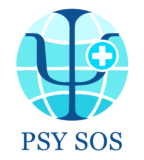The Importance and Process of Forgiving Our Parents for Healing Trauma

Lorena Salthu
– Last updated: June 18, 2024
Forgiving our parents is crucial for healing childhood traumas. Through therapy, we can understand and transform painful experiences, fostering emotional regulation and healthier relationships.
Forgiving our parents or making peace with their actions is a profound and often challenging journey, but it is crucial for healing and personal growth. The psychoanalytic perspective provides valuable insights into why this process is important and how it can be approached.
Understanding the Need for Forgiveness
Many people who have experienced maltreatment or emotional neglect in their childhood carry the psychological scars into adulthood, manifesting as mental health issues, relationship difficulties, and even perpetuating cycles of abuse. The transgenerational transmission of trauma highlights that unresolved issues with one’s parents can influence one’s parenting style and interpersonal
relationships.
Clinical experience suggests that our early relationships with caregivers form the blueprint for futurerelationships. When these early interactions are fraught with conflict or neglect, it can lead to deep-seated emotional wounds. Forgiving parents, or at least coming to terms with their shortcomings, can disrupt this cycle and promote healthier relationships and self-concept.
Why It's So Difficult to Forgive a Parent?
Forgiving a parent for childhood experiences can feel almost impossible, especially when it feels like an acknowledgment of their actions means letting them “get away with it”. The complexity arises because the relationship with a parent is deeply intertwined with one’s identity and emotional framework. Unlike a stranger or a colleague, a parent's actions and words shape our core beliefs and
self-worth.
Parents often carry a dual role: they are the source of both our early nurturance and, in some cases, our deepest wounds. This duality can create a confusing emotional landscape. For instance, a parent might have provided materially and believed they did their best, but this doesn’t negate the emotional neglect or abuse a child might have felt. These conflicting memories make forgiveness challenging because it feels like erasing one truth in favor of another.
Further complicating the matter is when parents refuse to acknowledge their role in the child’s trauma. Common reactions from parents include denial, minimization, or even competitive suffering, where they might claim their hardships were worse. This lack of validation can be infuriating and make forgiveness seem like a betrayal of one’s own experiences.
The Psychoanalytic Perspective on Forgiveness
Psychoanalytic theory emphasizes the importance of bringing unconscious feelings to consciousness. This involves recognizing and validating one’s emotions, understanding the broader context of a parent’s actions, and finding a way to rewrite the narrative of one’s experiences.
1. Acknowledge and Understand the Pain:
The first step in the process involves recognizing the hurt and its impact. It’s essential to validate one’s feelings and understand the depth of the pain caused. This self-awareness is a cornerstone of the therapeutical work, which emphasizes the importance of bringing unconscious feelings to
consciousness.
2. Develop Self-Compassion:
Self-compassion, as outlined by Dr. Kristin Neff, involves treating oneself with kindness, recognizing shared human experiences, and maintaining mindful awareness of one’s suffering without being overwhelmed by it. This practice is crucial in the journey of forgiveness as it helps in mitigating self-criticism and fostering a sense of inner peace.
3. Reflect on Parents’ Limitations and journey:
Understanding that parents are also products of their own experiences and limitations can foster empathy. Many parents who maltreated their children were themselves victims of abuse. This understanding doesn’t excuse their behaviour but can provide a broader context that facilitates forgiveness. Even that our parents did us wrong, they also did us some right, and even the worst parents did what they consider the best, even if it wasn’t.
4. Engage in a Therapy Journey:
Engaging in therapy can provide structured support and strategies for dealing with unresolved emotions. Psychoanalytic interventions, including parent-child psychotherapy and mentalization-based treatment, have been effective in helping individuals and families work through past traumas. These therapies focus on understanding and transforming painful emotional experiences and improving the capacity for emotional regulation and fostering
healthier relationships.
Tools and exercises for forgiveness can significantly aid this process. Techniques such as the “breath of thanks” and positive emotion refocusing are practical methods to cultivate a forgiving mindset. These exercises help individuals shift their focus from grievances to gratitude and love, which is
essential for emotional healing
5. Seek Support:
Sharing experiences with trusted individuals or in therapeutic settings can provide the necessary support and validation. This communal aspect of healing reinforces the notion that one is not alone in their suffering or their journey toward forgiveness.
Why Is It So Hard to Forgive?
The difficulty of forgiving a parent often stems from a sense of justice and the need for acknowledgment. Many individuals feel that without an apology or recognition of their pain, forgiveness means the parent is absolved of their wrongdoing. This need for validation is critical because it affirms the individual’s experiences and the reality of their suffering.
Patients often report that their parent’s denial or reinterpretation of past events is particularly enraging. This denial feels like an erasure of their reality and makes forgiveness seem not only difficult but unjust. Without acknowledgment from the parent, the emotional wound remains open and festering, making it hard to move forward.
The Journey Towards Forgiveness
While the journey towards forgiving a parent is fraught with challenges, it is a crucial step for one’s mental health and emotional well-being. Moving forward involves not only understanding the necessity of forgiveness but also actively working towards it.
Step-by-Step Approach to Forgiveness
1. Identify and Validate Emotions:
Recognizing and giving space to all emotions—anger, sadness, confusion, and even love—is crucial. This validation process allows individuals to understand their feelings without judgment, creating a foundation for healing. It is important to acknowledge that feeling anger towards parents, despite being told they did their best, is valid and part of the healing process.
2. Understanding Parental Backgrounds:
Exploring the parent’s histories can provide context for their behaviours. Many parents may have experienced their own traumas, influencing how they raised their children. Understanding this transgenerational transmission of trauma can foster empathy, making it easier to reconcile feelings of anger and compassion.
However, it is essential to remember that understanding a parent’s background does not invalidate one’s own experiences and emotions. Both the parent’s and the child’s experiences can be true simultaneously.
3. Self-Compassion and Acceptance:
Accepting oneself, including all past mistakes and imperfections, is integral to the process of forgiveness. This acceptance should be extended towards the parents, recognizing that their defensive reactions might stem from their struggles with self-acceptance and guilt.
4. Rewriting the Narrative:
Reframing involves shifting the goal from getting an apology to achieving personal peace. Instead of seeking validation from the parents, the focus should be on acknowledging one’s pain and finding ways to heal independently of the parent’s acknowledgment. This shift in perspective can significantly reduce the emotional burden.
5. Therapeutic Interventions:
Engaging in therapy can provide structured support and strategies for dealing with unresolved emotions. Psychoanalitical therapy can help in understanding the deeper roots of emotional pain and developing healthier coping mechanisms.
In psychoanalytic therapy, techniques such as parent-child psychotherapy and mentalization-based treatment are particularly effective. These therapies aim to understand and transform painful emotional experiences, improving the capacity for emotional regulation and fostering healthier relationships.
6. Practical Forgiveness Exercises:
Incorporating practical forgiveness exercises into daily life can aid in this process. Techniques like the “breath of thanks” and positive emotion refocusing help shift focus from grievances to positive aspects of life. These exercises promote a mindset of gratitude and love, which is essential for
emotional healing.
– The Breath of Thanks: This involves sitting quietly, focusing on breathing, and silently expressing.
Conclusion
Forgiving our parents, or at least making peace with their actions, is a complex yet essential step for healing from past traumas. Through understanding the need for forgiveness, validating emotions, exploring parental backgrounds, developing self-compassion, engaging in therapy, and practicing forgiveness exercises, individuals can move towards emotional freedom and healthier relationships.
Each person’s journey is unique, and the time it takes to reach a state of forgiveness varies. The critical factor is the willingness to explore different paths to resolution, focusing on personal growth and emotional well-being. Ultimately, forgiveness is about releasing oneself from the shackles of past hurts and embracing a future of emotional peace and resilience.
References
- Rosso, A. M. (2022). Psychoanalytic Interventions with Abusive Parents: An Opportunity for Children’s Mental Health. *International Journal of Environmental Research and Public Health*.
- Luskin, F. (2003). *Forgive for Good: A Proven Prescription for Health and Happiness*. HarperOne.
- Positive Psychology. (2020). *Psychology of Forgiveness: 10+ Fascinating Research Findings*.

With over 25 years of international experience in clinical and corporate settings, Lorena Salthu is a psychological counselor (Argentina) with specializations in Psychoneuroimmunology (Spain and the U.S.), psychoanalysis at EFPP (France), and Cognitive Behavioral Therapy (CBT).
She practices clinically in London, Monaco, and Paris, offering services in Spanish, French, and English. She is also a member of the National Counselling and Psychotherapy Society in the United Kingdom.
As the founder of PSY S.O.S, Lorena has created a global platform dedicated to providing free psychological crisis support, promoting mental health as an inherent human right.
Lorena Salthu – Founder of PSY S.O.S
Other Articles
Why human beings often seek suffering unconsciously and how psychoanalysis can help people free themselves from self-destructive patterns deeply rooted in their psyche.
Discover how anxiety affects mind and body, its root causes and the risk of not treating it. An analysis from psychology and psychoanalysis to understand and overcome this daily affliction.
Explore the complex interplay of unconscious drives, cognitive beliefs, and neuroscience in shaping men’s attraction to smart partners. Discover the surprising insights.



